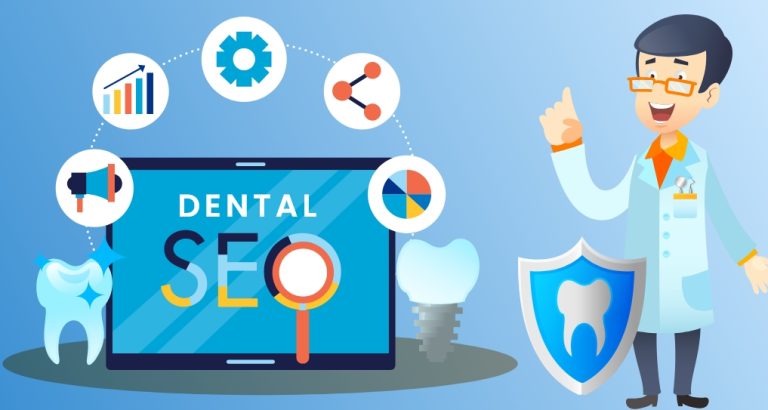Category: dental
Empowering Dental Practices with Sustainable SEO Solutions
Introduction: The Green Shift in Dental Marketing
The digital landscape is constantly evolving, and for dental practices looking to stay at the forefront of their industry, embracing sustainable SEO solutions has become indispensable. While many dental professionals focus primarily on clinical excellence, understanding and implementing effective dental SEO can significantly enhance their online presence and patient engagement. This blog post delves into how sustainable SEO strategies can empower dental practices to not only excel digitally but also contribute to a more sustainable future.
The Need for Sustainable SEO in Dentistry
With the growing emphasis on environmental responsibility, many industries, including dentistry, are seeking ways to minimise their ecological footprint. Sustainable SEO is a concept that brings together traditional SEO practices with environmentally conscious efforts. By adopting green strategies, dental practices can improve their online visibility while aligning with eco-friendly principles.
Why Choose Sustainable SEO?
Sustainable SEO offers numerous benefits not only from an environmental standpoint but also in terms of enhancing the credibility and trustworthiness of a dental practice. By utilising eco-friendly practices, dental professionals can:
- Improve website performance and energy efficiency
- Enhance user experience with streamlined, fast-loading content
- Reduce digital waste and carbon footprint
For those looking to explore sustainable practices further, there are excellent resources available to help optimise website strategies for sustainability.
Implementing Green SEO Strategies
Integrating green SEO practices into a dental practice’s digital marketing plan is not as daunting as it may seem. Below are some fundamental steps to consider:
Optimise Website Infrastructure
The foundation of sustainable SEO lies in optimising the infrastructure of a website. This includes reducing image sizes to improve load times, utilising efficient coding practices, and choosing green web hosting services. These adjustments not only enhance SEO performance but also contribute to reducing the environmental impact of the website.
Create Eco-Friendly Content
Developing content that resonates with the principles of sustainability can help build a strong connection with environmentally conscious patients. This involves crafting informative blogs, articles, and posts that highlight the practice’s commitment to green initiatives. Such content is invaluable for fostering patient loyalty and trust.
Utilise Green Marketing Techniques
Adopting green marketing techniques such as leveraging online platforms and reducing paper-based marketing materials can significantly contribute to sustainability. Dental practices can explore various strategies and tips to effectively market their services while maintaining eco-friendly standards. For detailed insights, consider exploring this guide on creating an SEO strategy for going green.
Maximising Benefits: A Holistic Approach
Dentists can maximise the benefits of a sustainable SEO approach by implementing a holistic strategy. By combining both traditional and green SEO practices, dental practices can enhance their online presence, attract more patients, and contribute positively to the environment. Incorporating sustainable practices into marketing strategies can further augment these efforts.
Conclusion: A Sustainable Future for Dental Practices
Embracing sustainable SEO solutions is a powerful way for dental practices to remain competitive in an increasingly eco-conscious world. By optimising their web presence through green practices, dental professionals can not only improve their digital footprint but also establish themselves as leaders in environmental responsibility. As the demand for sustainable practices continues to grow, dental SEO remains a vital tool in paving the way towards a greener future, ensuring that dental practices thrive both online and in their community endeavours.
Innovative Pain-Free Techniques Revolutionising Dental Care
Introduction
For many, the thought of visiting the dentist conjures up images of discomfort and anxiety. However, recent advancements in dental technology are transforming this perception. Innovative techniques are reshaping the landscape of dental care, making procedures less daunting and more comfortable for patients. This revolution in dental practice is evident when visiting the dentist Brentwood, where cutting-edge methods are being embraced.
The Rise of Pain-Free Dentistry
In recent years, the dental industry has witnessed significant strides in creating pain-free experiences for patients. These advancements are not just about new gadgets; they represent a holistic shift in how dental care is delivered. From more precise diagnostic tools to minimally invasive procedures, these innovations are designed to alleviate patient discomfort and anxiety.
Laser Dentistry: A Gentle Approach
One of the most notable advancements in pain-free dentistry is the use of lasers. Laser dentistry offers a gentler approach to traditional procedures, such as fillings and gum surgery. The precision of lasers reduces the need for drills and sutures, minimising pain and speeding up recovery times. This method is particularly beneficial for patients with dental anxiety, providing a quieter and less intimidating experience.
Robotic-Assisted Surgery
Robotic technology is making its mark in the dental field, offering unprecedented precision in surgical procedures. Dental schools, such as those in the United States, have begun to implement robotic-assisted surgery, improving the accuracy and outcomes of treatments. For those interested in the specifics, this pioneering approach has set the stage for a new era in dental surgery.
The Role of Technology in Diagnosis
Precision in diagnosis is crucial for effective treatment. The advent of advanced imaging techniques, such as 3D digital scans, allows dentists to diagnose problems with more accuracy than ever before. This technology not only ensures that treatments are tailored specifically to the patient’s needs but also helps in planning procedures that are less invasive and more efficient.
AI and Machine Learning in Dentistry
Artificial Intelligence (AI) and machine learning are becoming integral to modern dental practices. By analysing vast amounts of data, AI can identify patterns and predict outcomes, allowing for more accurate diagnoses and personalised treatment plans. This approach is changing the way dental professionals assess and treat oral health issues, as detailed in this comprehensive study.
Biocompatible Materials
The use of biocompatible materials in dental procedures is another significant development. These materials, which are compatible with the human body, reduce the risk of complications and enhance the overall success of treatments. They are particularly useful in restorative dentistry, where they can be used to create long-lasting, natural-looking replacements for damaged or missing teeth.
The Future of Dental Care
The future of dental care looks promising, with ongoing research and development focused on further enhancing patient comfort and treatment outcomes. Innovations such as nanotechnology and regenerative medicine are on the horizon, potentially offering even more revolutionary ways to maintain and restore oral health. For a deeper dive into the future possibilities, many articles on emerging technologies can provide an insightful overview.
Conclusion: A New Era in Dentistry
The evolution of pain-free dental techniques marks a new era in oral healthcare. As these innovations become more widespread, patients can look forward to dental visits that are not only more comfortable but also more effective. The role of progressive dental practices, is pivotal in this transformation, setting a standard that others will follow. With ongoing advancements, the future of dentistry promises to be an exciting journey towards optimal oral health for all.

















